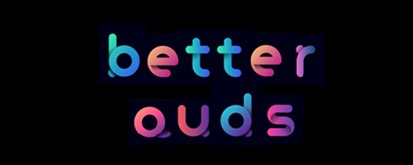Author Kenneth Porter M.D. is a spiritual psychiatrist and psychoanalyst. He has taught Buddhist Insight Meditation at the New York Insight Meditation Center, was a long-term student of the Kundalini Master Chandrasekharanand Saraswati, was President of the Association for Spirituality and Psychotherapy, and is an ordained Teacher/Minister of the Diamond Approach, the work of A.H. Almaas. He currently practices and lives with his wife in New York City.
Where Are You from:

I was born in Brooklyn 77 years ago, a Jewish middle-class boy with apparently a good intelligence. I went to good schools, did well, decided to become a psychiatrist, went to medical school and went through psychiatric training, which was psychoanalytically oriented. At age 42, I developed a mild heart condition which led me to begin meditation and what’s called “the spiritual path.” I studied and taught Buddhist meditation, worked with a Kundalini Master from Rishikesh, India, and became a student in, and eventually an ordained teacher in, the spiritual school of the Diamond Approach, the work of A.H. Almaas.
When and Why Did You First Consider Yourself a Writer?
My Kundalini Master always was encouraging me to write a book. “Kenporter (that’s what he yelled at me – one word) – WRITE BOOK!” I thought it was a silly idea. Then five years ago, one night, after my usual hard day’s work doing psychotherapy, I found myself sitting in front of my computer and starting to write. I don’t know why then, don’t know where it came from, don’t know how I kept writing every evening, weekends, and whenever I had free time, for six months. Then, like magic, the book was finished. Honestly, no idea what happened.
What Inspired you to Write Apollo’s Lyre?
Now, if I reflect, as I wrote in my intro to the book, I see the following (I didn’t see this at the time). I have had an extraordinarily fortunate life, compared to most of the 7.8 billion folks on the planet. One of the psychoanalysts from whom I have learned most – Erik Erikson – had a theory that our lives can be broken into stages, with each stage having a task. One of the last stages in old age has the task of generativity – giving back to society some of what we have been helped to achieve. So that is how I now understand why I wrote my book. Whatever wisdom and love I’ve been fortunate enough to have been helped to develop, I want to give back.
How did you come up with the Title?
Why the title “Apollo’s Lyre?” As a boy and all my life, my deepest heart’s desire was to go to the stars. You may remember that the NASA program that first took us to the Moon was code-named Apollo. In addition, Apollo was the ancient Greek god of, among other things, healing – which is my profession as a physician – and his ancient temple in Delphi had inscribed over the entrance “Know Thyself” – the motto of psychoanalysis. I think that all these reasons went into my choosing the Title of my book.
Is there a message in your book?
The basic message of the book is that our lives are most meaningful and fulfilling when we focus not only on the necessary tasks of our daily life but also include experiences of wisdom, love, being fully present, fully accepting ourselves, being selfless – in other words, what are called the spiritual dimensions of life. And if we are psychotherapists, our work with our patients will be most powerful if we include these spiritual considerations as guidelines for our professional work.
What books have most Influenced you – What Writer would you consider a Mentor?
I have been a reader all my life. Probably the most powerful early influence on me was the French existentialist writer Albert Camus, whom I first read in college and about whom I wrote my college thesis. Camus taught me that it’s possible to be an authentic person in the most real way and communicate that in life. That’s still my guideline today. Thomas Mann’s Magic Mountain taught me that the highest point of view in life is to understand and have empathy for the entire range of human personalities and experience. Robert Frost’s poetry taught me down-to-earth daily wisdom. W.B. Yeats’ poetry taught me that words can create beauty. Rumi’s poetry taught me that the heart is the location of ultimate wisdom. Above all, the writings of my spiritual teacher, A.H. Almaas, taught me what it means to be a spiritually mature human being.
Advice to writers – The hardest part of Writing?
Advice to writers? It’s all based on everyone’s favorite writing advice from Somerset Maugham: “There are three rules for writing a great novel. Unfortunately, no one knows what they are.” Meaning, for all writers: we don’t know in advance how to do what we do. As Henry James said, “We work in the dark.” We just get ourselves somehow to sit down in front of the blank page and trust something enough to start scribbling. This is the hardest thing to do. Just do this. No perfectionism. It will come out right.
What book are you reading now?
I’m finishing a four-year project of reading the Bible. Currently up to the middle of the New Testament. Remarkable.
Thank you so much for your time! I am sure people will like your book!

